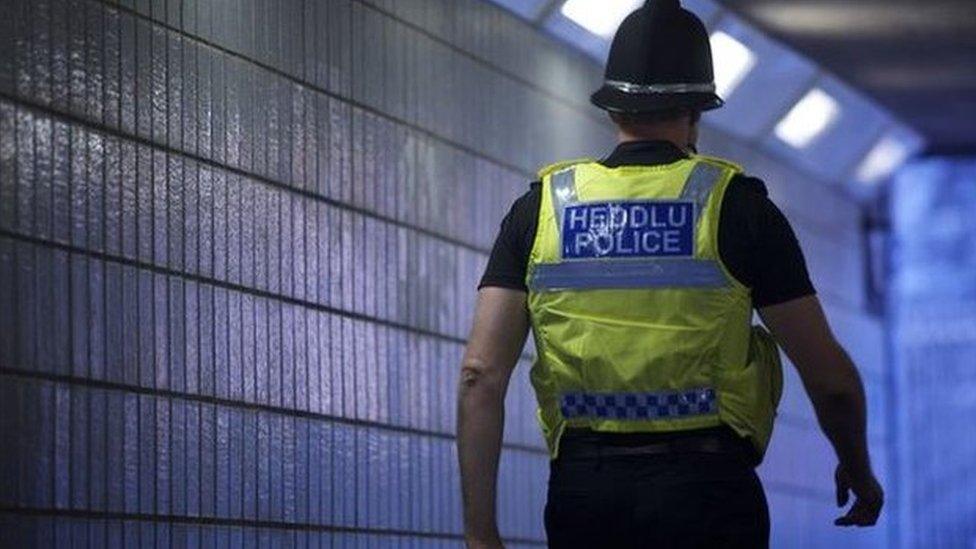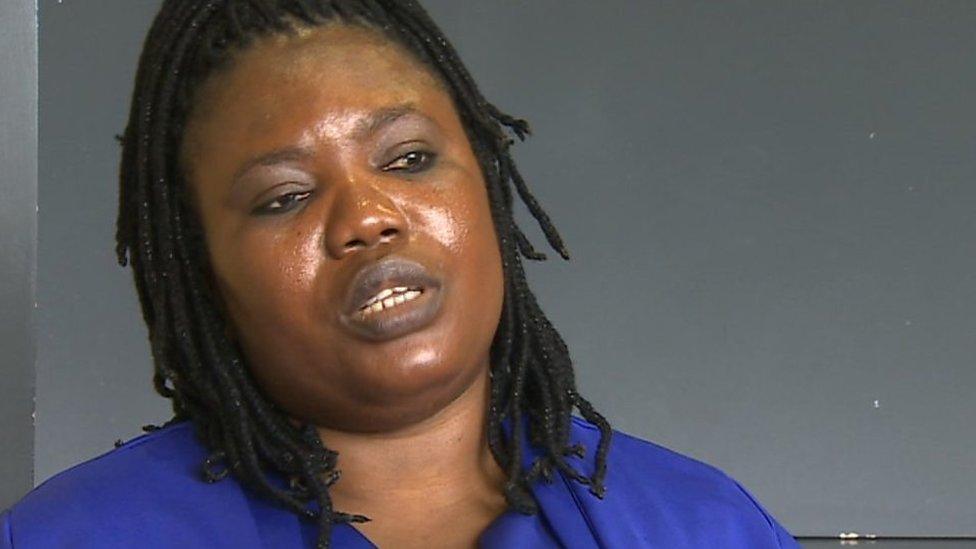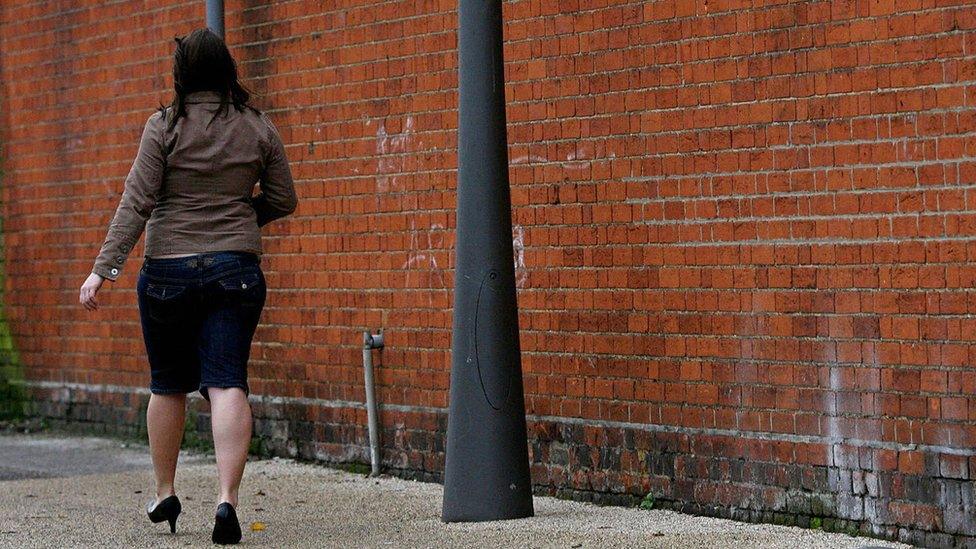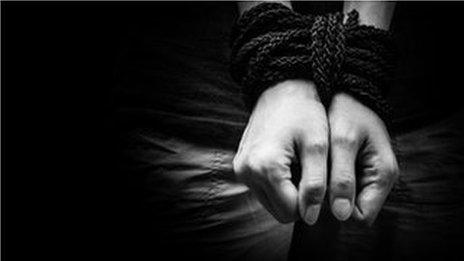Slavery and human trafficking aided by 'porous borders'
- Published
Slavery victim, Blessing, said she feels "bad, sad and sorrowful" that people took advantage
People trafficking into Wales is being made easier by its "porous" borders, the country's slavery chief has warned.
Stephen Chapman raised concerns about the number of entry points with no checks.
He spoke out ahead of a week of action by Welsh forces after those at risk of human trafficking and modern slavery in Wales rose by 400% in five years.
Victims recorded through the National Referral Mechanism, external increased from 32 in 2012 to 125 in 2016.
To cope with growing numbers, last year 5,500 people were trained to identify potential victims, including police, emergency and social workers.
The figures refer to people "at risk" as they also include children of victims who could potentially be used as slaves as well.
Gwent, South Wales and Dyfed-Powys Police are taking part in an awareness week to help people spot the signs.
"We are aware and we are concerned about our porous borders," Mr Chapman said.
"Whilst we have sea ports and we've got airports, there's no check on who's coming in by road, through our other border with England.
"And there are ports across Wales, where there is no one (making checks)."
He also said the Common Travel Area - where people moving between the Republic of Ireland and Wales do not need to show passports - brings "some difficulty".
Recorded victims in Wales include UK nationals as well as people from Vietnam, Romania and Albania.

Another is a Nigerian-born woman called Blessing, who worked as a maid from the age of seven before being sexually abused and trafficked.
She said: "My auntie brought me here for a better life, that is what she said."
However, after arriving in London, her life was controlled, with all money she earned going into her relative's account.
She said: "It's difficult because if someone doesn't know they're being trafficked, they would not know how to deal with it.
"Like my case I was thinking it was help."
Blessing, who fled to Cardiff, said her situation made her feel "bad, sad and sorrowful".
"I feel people had taken great advantage of my circumstances and situation. I want to forget about everything I've been through in the past - I just want to close that chapter," she added.
'Hidden crime'
She is currently waiting to hear if she will receive asylum.
Aid organisation Bawso, which is helping her, said its trafficking project helped 82 people in 2014-15, rising to 209 in 2016-17.
Its accommodation is almost full and spokeswoman Angelina Rodriguez said: "What we're also seeing is a lot of people who've been through historical trafficking - so haven't identified they've been victims of trafficking for a while and now they're coming out and are saying 'actually this is what's been happening to me'.
"So we're picking up a lot of cases not only in our supported accommodation but outreach accommodation in the whole of Wales."
Wales' policing lead for human trafficking and modern slavery, Gwent Police Deputy Chief Constable Julian Williams, said: "It is often called a hidden crime, a new emerging crime because it spans across so many areas of criminality.
"People who are trafficked into the country come here under false pretences, people who are in the country are engaged in sexual exploitation, labour exploitation and domestic servitude and it may span into criminalised areas such as child sexual exploitation or abuse, domestic abuse, money laundering or drugs."
- Published16 May 2017

- Published21 April 2017

- Published27 April 2017

- Published12 October 2016

- Published22 February 2017
